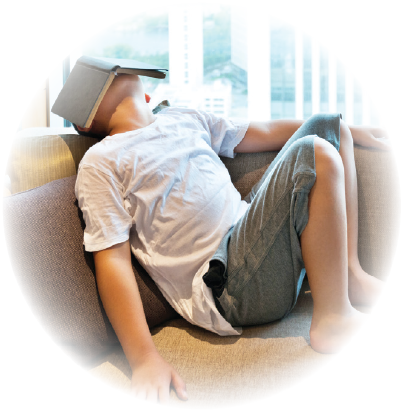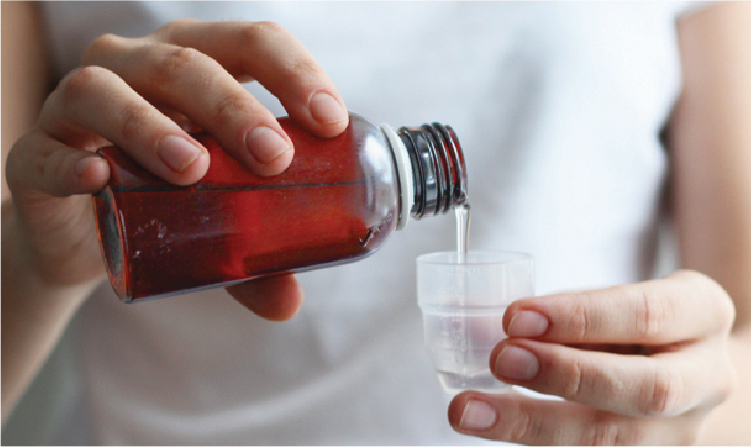After the diagnosis
- Your child's focus is better in the morning but gets worse early in the afternoon. (This might mean that the morning dose is wearing off too quickly.)
- Your child has sudden changes in weight or appetite. (This might mean that your child has a slower metabolism or the dose may be too high.)

- Your child seems too “hyper” and irritable during most of the day when the medication is active. (This might mean the dose is too high or it's not the right medication for your child.)
- Your child focuses better but isn't him/herself when the medication is active. (This might mean that the dose may be too high or it may not be the right medication for your child.)
- Your child functions much better at school but still struggles to get homework done starting in the late afternoon. (This might mean that the dosing schedule or regimen may need to be adjusted or that a different medication may need to be considered.)

- Your child responds well to the medication during the day but has a lot of trouble falling asleep most nights. (The medication may be lasting too long, or your child may actually need a small dose of it closer to bedtime.)
- Your child gets very irritable, “hyper,” or very serious for several hours each day as the medication wears off. (The medication may be dropping off too fast. A noticeable "crash" or drop off of the medication may be a sign that you should re-evaluate the child's regimen with his or her health care provider.)
Although ADHD is a long-term condition, the good news is that with the right treatment plan, it often can be managed, which can improve your child's symptoms.
References:
- Centers for Disease Control and Prevention (CDC). Treatment for ADHD. Available at https://www.cdc.gov/ncbddd/adhd/treatment.html. Accessed June 7, 2020.
- Centers for Disease Control and Prevention (CDC). ADHD in the Classroom: Helping Children Succeed in School. Available at https://www.cdc.gov/ncbddd/adhd/school-success.html. Accessed June 7, 2020.
- Understood.org. Types of ADHD Medications. Available at https://www.understood.org/en/learning-thinkingdifferences/treatments-approaches/medications/types-of-adhd-medications. Accessed June 7, 2020.
- Children and Adults with Attention-Deficit/Hyperactivity Disorder (CHADD). Medications Used in the Treatment of ADHD. 2019. Available at https://chadd.org/wp-content/uploads/2018/05/Medication-Chart-July-2019.pdf. Accessed June 7, 2020.
- DYANAVEL XR (amphetamine) extended-release oral suspension, CII. Prescribing Information. Tris Pharma, Inc. Monmouth Junction, NJ 08852. 2017. Available at https://www.trispharma.com/generic/DYANAVELXR_pi.pdf. Accessed June 7, 2020.
- STRATTERA (atomoxetine hydrochloride). Prescribing Information. Eli Lilly and Company. Indianapolis, IN 46285. 2002. Available at https://pi.lilly.com/us/strattera-pi.pdf. Accessed June 7, 2020.
- Children.org. American Academy of Pediatrics. Common ADHD Medications & Treatments for Children. Available at https://www.healthychildren.org/English/health-issues/conditions/adhd/Pages/Determining-ADHD-Medication-Treatments.aspx. Accessed June 7, 2020.
- Understood.org. 9 Questions to Ask Yourself When Considering ADHD Medication for Your Child. Available at https://www.understood.org/en/learning-thinking-differences/treatments-approaches/medications/9-questions-to-ask-yourself-when-considering-adhd-medication-for-your-child. Accessed June 7, 2020.
- Children and Adults with Attention-Deficit/Hyperactivity Disorder (CHADD). Peaks and Troughs: UnevenMedication Coverage & ADHD. Available at https://chadd.org/wp-content/uploads/2018/06/ATTN_Fall_17_PEAKS.pdf. Accessed June 7, 2020.
- Children and Adults with Attention-Deficit/Hyperactivity Disorder (CHADD). Take a Summer Break? Medication Holidays for Your Child. Available at https://chadd.org/adhd-weekly/take-a-summer-break-medication-holidays-for-your-child/. Accessed June 7, 2020.
- Children and Adults with Attention-Deficit/Hyperactivity Disorder (CHADD). Managing Medication for Children and Adolescents with ADHD. Available at https://chadd.org/wp-content/uploads/2018/05/managing_medication.pdf. Accessed June 7, 2020.
- Quillichew ER (methylphenidate hydrochloride) extended-release chewable tablets, for oral use, CII. Prescribing Information. Tris Pharma, Inc. Monmouth Junction, NJ 08852. 2018. Available at https://www.trispharma.com/generic/Quillichew_ER_08_2018_FINAL_for_Website_Jan_22_2019.pdf. Accessed June 7, 2020.
- Understood.org. Signs Your Child's ADHD Medication Needs Adjusting. Available at https://www.understood.org/en/learning-thinking-differences/treatments-approaches/medications/signs-your-childs-adhd-medication-needsfine-tuning. Accessed June 7, 2020.
- National Institute of Drug Abuse. Drug Facts. Prescription Stimulants. Available at https://d14rmgtrwzf5a.cloudfront.net/sites/default/files/drugfacts-prescriptionstimulants.pdf. Accessed June 7, 2020.


